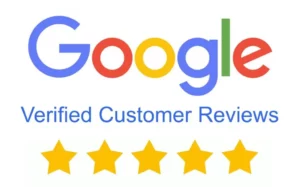What is a Communication Workshop?
A communication workshop is a structured training session (or series of sessions) designed to help individuals significantly improve how they collaborate and connect with others in the workplace.
Whether you’re leading a team, working cross-functionally, or simply aiming to reduce friction and confusion at work, strong communication isn’t just helpful – it’s a game changer. And the good news? It’s a skill you can learn, strengthen, and apply immediately with the right training and practice.
What skills are typically taught in a communication workshop?
At Progressive Coaching, Switzerland, we focus on building the following core skills:
- Communication and influence across hierarchies
- Conflict resolution
- Establishing mutual purpose
- Establishing mutual respect and trust
- Managing emotions in conversations and conflict
- Recognising enemy images
- Framing the conversation
- Separating observation from evaluation
- Reducing defensiveness in other (and self)
- Creating conditions for psychological safety
- Body language, tonality, questions
- Coaching techniques
- Listening to understand needs
- Understanding other’s behaviours
- Resolving situations in a way that meets everybody’s needs
- Converting conversations into action
What happens in a Communication Workshop?
I like to say that when participants give their time to attend a live workshop—whether online or in person—they deserve to learn ten times more than they could from reading a book or watching a YouTube video.
That’s exactly what we aim to deliver.
The key difference? We create experiences that simply can’t be replicated through passive learning.
For example, participants benefit from:
Practising the skills in real time, with immediate feedback from peers and experienced trainers
Observing how others communicate and reflecting on what works (and what doesn’t)
Engaging in structured scenarios based on real workplace challenges
Testing new approaches in a safe, supportive environment
Gaining personal insights through live coaching and guided reflection
Receiving tools and frameworks that can be applied straight away
Building confidence by stepping outside habitual communication patterns
Learning how their body language, tone, and phrasing affect the message
Experiencing the impact of deep listening and emotionally intelligent responses
Workshops don’t just teach communication—they transform how people show up in conversations.
Common formats and delivery methods
Communication workshops can be delivered in various formats – each one designed to meet the needs of different teams, schedules, and learning styles. Whether you’re training managers, entire departments, or cross-functional teams, flexibility in delivery is key.
Here are the most common formats we offer at Progressive Coaching:
In-person workshops
Ideal for building trust, running dynamic exercises, and engaging the full group with physical presence and energy. Often we do group sizes of around 20 participants, but much larger is also possible, and we sometimes bring in additional trainers for larger groups.
Live online sessions
Great for remote or hybrid teams. These sessions use breakout rooms, interactive tools, and live facilitation to maintain engagement and connection – even through a screen. Again, group size of around 20 is most common, but we also often run much larger groups (more than 100 people) as more people can often join with this flexible online option.
Short, focused sessions (1–2 hours)
We regularly deliver 2-hour workshops using a modular, monthly format. For example, over a six-month period, we facilitate one focused session each month. This approach allows participants to engage deeply without needing to step away from their daily responsibilities for long stretches. The skills covered in each session build progressively over time, creating a compounding effect. Monthly touchpoints with the trainer help maintain momentum and motivation, as participants reflect on what worked since the previous session. It also keeps the content fresh and encourages real-world application between workshops, making the learning more relevant and lasting.
Deep-dive workshops (half-day or full-day)
This approach is often used in conjunction with the shorter regular trainings.
The deep-dive session provides the time and space to explore key topics in depth, address specific communication challenges, and build a shared understanding across the team. It sets a strong foundation for change. The monthly 2-hour follow-up sessions then serve to refine those skills, build on the insights, and support participants in turning new behaviours into their default mode of communication.
Regardless of format, what matters most is interactivity, real-world relevance, and a safe space for practice—all of which are central to our approach.
Benefits for Teams and Organisations
I have heard it said before, and it is a statement I repeat often in our communication trainings as I know it to be true:
At the heart of almost all problems when we are dealing with other human beings, which means:
- in our organisations
- in our teams
- in our relationships
are important conversations…
conversations that we’re either not having,
or,
not having well.
I believe this really encapsulates the far reaching benefits of building communication skills as a core professional skill.
In today’s interconnected world, it’s not a
nice-to-have, but a strategic advantage.
In an era where technology is advancing rapidly and AI is now handling routine tasks, human communication remains the differentiator. Systems and machines can process data flawlessly – but they can’t build trust, read the room, defuse tension, inspire a team, lead with humanity. Only people can do that.
This is why organisations that prioritise communication don’t just avoid unnecessary common problems – they create alignment, drive innovation, and build cultures where people feel safe to contribute and grow. And when communication improves, so does everything else: collaboration, execution, morale, and long-term results. Developing communication isn’t just about solving soft problems – it’s a serious lever for performance, leadership, and fulfillment at work.



